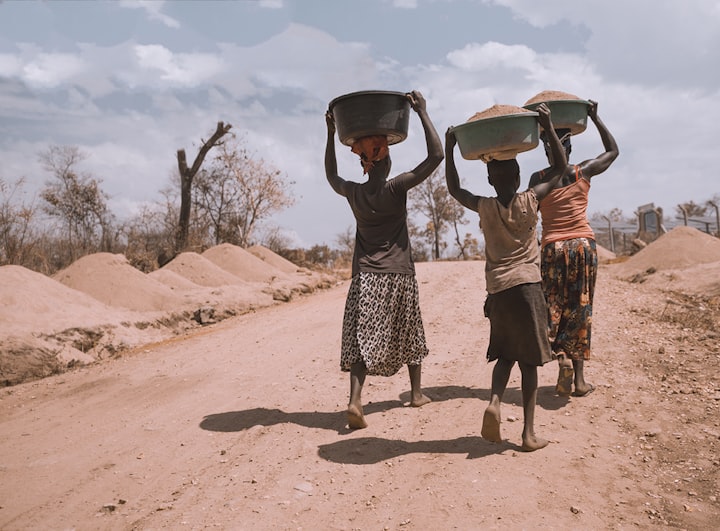
A couple of months ago, I came across an organization called GiveDirectly. Their slogan is: “Send money to people living in poverty”, and they are in charge of making your cash reach people living in disadvantaged countries, mainly in Africa.
I have met many charitable people in my life, but one thing that has always bothered me is that many of those charitable buddies seem to believe that people in poverty don't need cash.
They are proud to donate clothes, food or cleaning supplies, but I can count on my fingers the people I have seen giving money, whether it be $5, $10 or $20 bucks.
I call this the bloody hypocrisy of the First-World people.
Why I send money to a family in Africa every month
I don't want to offend anyone, but I have to say it:
People living in disadvantaged conditions don't just need food and something to cover their genitals.
Being “poor” does not mean that a person is primitive. Neither does their needs have to be very different from a white man sitting on a bench in Central Park, eating a Big Mac.
In fact, many children living in poverty dream every day of having $10 bucks to buy a Big Mac and a Coke, you know? The problem is that First–World people think they only need oatmeal and school supplies.
In a way, I think we disguise our pride and superiority complex behind a false solidarity. I'm not saying that we do it consciously, it can also be part of an unconscious urge.
Not as easy as Maslow said
If we take Maslow's Pyramid of Needs as a reference, then it would be easy to reduce all human aspirations to the basic instinct of survival. This would make hypocritical First–World people think that a child in a Kenyan village only needs to sleep indoors, eat well and not die of diarrhea…
… But the human essence is not as simple as a pyramid model.
In fact, if you ask a psychologist, he will surely explain that Maslow's Pyramid cannot be interpreted linearly because human aspirations are unpredictable. They don't always follow the order that Maslow described.
I speak of this because I have noticed that many people who make donations seem to believe that families living in poverty are like Neanderthals, and therefore they don't need money.
“We will send some boxes full of non-perishable food, clothes, shoes, and maybe a few toys for the children in Africa.”
That's what they'll tell you if you ask, but where the hell is the cash? That's a question they won't want to hear.
In the worst case, they will answer something like: "Oh, we cannot give money to the poor, they will not know how to use it."
First world morons.


Any help you give will be good enough for someone
When I learned about GiveDirectly and what they do, I could only feel empathy. Finally, an organization understands that poor people not only have to worry about contaminated water and malnutrition (which are still serious problems), but also about other things.
Wouldn't a girl living in a town in Africa want to be able to buy sanitary napkins? I bet so and you know what? She needs cash for that.
If you are one of those people who donate food, clothes, and other basic items, I don't want any of this to offend you. I just want you to ask yourself:
“If I were in their place, wouldn't I also need money?”
The GiveDirectly team does a great job. You can find lots of interesting data on their website to make you feel confident about where your money is going.
In addition, you do not have to take $100 every month from your pocket if it is not in your capacities. You are free to donate what you can, and I assure you that, no matter how little it may seem in a Western country, you will be helping someone somewhere.
About the Creator
rtis
I write to put my pieces together.






Comments
There are no comments for this story
Be the first to respond and start the conversation.